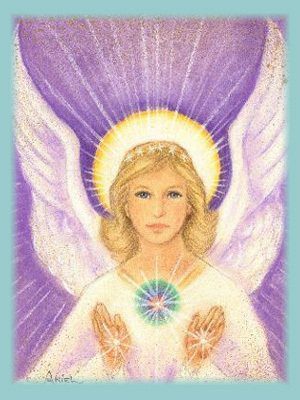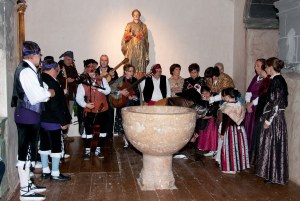"Vibraremos en las cuevas del Mago Merlin, conectándonos con una energía pura de libertad donde todos los elementos juntos: la tierra, el mar, el airey nuestro espíritu se fundirán en uno solo, esto es lo que el alma necesita para crear Magia Pura." Isabella Magdala.
En la leyenda del rey Arturo, la Mesa Redonda o Tabla Redonda era una mesa mística de Camelot alrededor de la cual el rey y sus caballeros se sentaban para discutir asuntos cruciales para la seguridad del reino. En algunas versiones, el mago Merlín también tenía un asiento.
From tomelessmyths.org: Merlin is one of the most fascinating figures in the Welsh literature
and the Arthurian legend. Merlin is a man of mystery and magic;
contradiction and controversy surrounded his life.
Merlin wore many hats: he was a wizard or sorcerer, a prophet, a
bard, an adviser and a tutor. He appeared as a young boy with no father.
He appeared as an old, wise man, freely giving his wisdom to four
successive British kings. He was dotting old fool, who couldn't control
his lust over beautiful women, who hold him in fear and contempt. He had
even appeared as a madman after bloody battle, and had fled into the
forest and learned how to talk to the animals, where he became known as
the Wild Man of the Woods. Merlin was the last of the druid, the Celtic
shaman, priest of nature, and keeper of knowledge, particularly of the
arcane secrets.
According to the Welsh historian, Nennius, Merlin appeared as a
young boy, but under the name of Emrys or as Ambrosius in Latin, with
the British king, Vortigern.
In a similar account with Vortigern, it was Geoffrey of Monmouth, who
had named this boy – Merlinus Ambrosius (Merlin Emrys in Welsh).
In the work, titled Historia regum Britanniae ("History of
the Kings of Britain", c. 1137), Geoffrey of Monmouth wrote that he was
a son of a nun and grandson of the King of Demetia in southern Wales.
As to his father, he was either a devil or an incubus. Merlin is a
paradox, he was the son of the devil, yet he was the servant of God.
Merlin had being identified to the Welsh fictional bard named Myrddin of the late 6th century, in the Welsh poem called Afallenau and several other poems, preserved in the manuscript known as the Black Book of Carmarthen, c. 1250. These rather old Welsh poems appeared rather obscure and gibberish.
Geoffrey of Monmouth composed a similar tale of Merlin's madness, written in Latin, known as Vita Merlin
or the "Life of Merlin", in 1150. In this version, he was known as
Merlin Calidonius. Here, he has a sister and a wife, but there's no
mention of his parents. It is the only text that mentioned Merlin having
a wife.
Many scholars were puzzled over his birth, his magical power, his prophetic gifts and his mysterious yet often conflicting fate.
First of all, Geoffrey of Monmouth wasn't the first writer who recorded event about Merlin in his Historia regum Britanniae ("History of the Kings of Britain", c. 1137). In fact, how Merlin had gain his power in the Historia regum Britanniae was different to Geoffrey's later work called Vita Merlini
("Life of Merlin", c. 1152). These two contradictory works had led many
scholars to believe that there are two different people with the same
name, Merlin.
| Boy Prophet
|
|
According to Geoffrey of Monmouth's work called Historia regum Britanniae
("History of the Kings of Britain", 1137), Merlin was rumored to have
been the son of a demon or an incubus and a mortal woman who was a nun.
Merlin was probably born in the town of Carmarthen. Because of his link
with a demon and God, Merlin had great wisdom and powers from the two
opposing forces.
Later legend has expanded the amazing birth of Merlin, such as the prose adaptation of Robert de Boron's Merlin; the adaptation was known as the Prose Merlin or the Vulgate Merlin, because it was part of the Vulgate Cycle. See Son of the Devil? for a brief tale of Merlin's birth and how he had gained his powers of foresight and magic.
According to Geoffrey, his mother was the daughter of the King of
Demetia (Dyved, kingdom in southern Wales). Though, a princess, she
became a nun.
After King Vortigern
lost his battle and much of his territory lost to the Saxons, he fled
into Wales, where he decided to build a fortress. Everyday he had part
of the wall built, but it would collapse the next day. The elders led by
Magan, advised the king to find a boy without a father, kill the boy,
and use the boy's blood mixed with mortar, so the building would not
crumbled again. These elders, who advised King Vortigern, conspired to
have the boy Merlin killed, because they knew that he would cause their
death.
When they found the boy without a father, he was brought before
the king. When Merlin found out what the king's advisers had told
Vortigern, the boy told him it was the most ridiculous advice, and
rebuked them for wanting his death.
Merlin told the king the reason why his fortress always
collapsed. Merlin told Vortigern was not building the wall on solid
foundation, because there was pool of water underneath. And underneath
the pool was two sleeping dragons – one red dragon, the other was white.
Another reason why the walls always collapse was that the dragons
fought one another since they were trapped underground.
Everything Merlin had told to the king was true. The dragons wakened and rose out of the hole and fought one another.
After this, Merlin proclaimed that his name was also Ambrosius.
Merlin then foretold a series of prophecies about Britain. The
significant of the two dragons fighting one another, was that the future
kings of Britain would drive the Saxons out of their country, but
inevitably, the Saxons would overcome the Britons and ruled over
Britain. The red dragon represents the Britons, while the white dragon
was seen as the Saxons. Merlin also foretold that the Boar of Cornwall
shall drive out the Saxons giving relief to the Britons. The Boar of
Cornwall was the banner of Arthur, son of Uther. Merlin also foretold
that 6 descendants of Arthur shall rule after the great king before
Saxons would return and conquer Britain.
With the dragons gone, and the foundation stabled, Vortigern
completed the construction of his fortess, and the king named it Dinas
Emrys, which is "Ambrosius' Fort".
This episode in Geoffrey's work was largely derived from the historian Nennius, who wrote the Historia Brittonum
(c. 9th century). In Nennius' work, the boy-prophet was named Ambrosius
(or Emrys in Welsh), not Merlin. Where as Geoffrey claimed that
Merlin's father was an incubus, Nennius wrote that Ambrosius (Merlin)
claimed his father was a Roman consul.
In Nennius' text, Vortigern's adviser told the king that "You
must find a child born without a father....". This doesn't mean his
father wasn't mortal. It most likely mean that his father died, before
Ambrosius (Merlin) was born. Geoffrey made this statement, that Merlin's
father was the devil.
Also that the king found young Ambrosius (Merlin) was found in
the field of Aelecti, in the district of Glevesing, not in the town of
Carmarthen. It was Ambrosius who became adviser to King Vortigern after
he reveal the mystery of the falling walls.
The significance of Carmarthen (Caerfyrddin) was not only the
place of Geoffrey rested on how this town was translated to "Caer
Merddin" or "Merddin's Fort".
After Vortigern's death, Merlin advised Aurelius Ambrosius
of bringing the large bluestones from Mount Killaraus in Ireland, and
erecting a circle of stones known as the Giant's Ring (Stonehenge) in
Salisbury, England. Aurelius Ambrosius and his brother Uther had to fight a series of battles against the Saxons.
One night, Uther and Merlin saw a comet in the sky, where the
tail caused the sky to lit up in the shape of a dragon. Merlin informed
Uther, that his brother (Aurelius Ambrosius) had died from poisoning,
and Uther was now king of the Britons. This dragon became the symbol of
Uther's kingship, and Merlin gave the new king the surname "Pendragon" (Uther Pendragon).
It was here, for the first time, Merlin was seen as sorcerer or
wizard. He had used his magic to move the stone. It was his magic that
allow Uther to disguise to look like the husband of Igraine.
Merlin became involved in the conception of Arthur, when Uther fell in love with Duke Gorlois' wife, Igraine. Gorlois
(Hoel) was duke of Cornwall, and he was one of Uther's allies in the
war against the Saxons. Gorlois was offended when he saw that Uther
could not control his feeling for his wife. Gorlois withdrew his support
to Uther. Gorlois thought to protect Igraine in his strongest castle in
Tintagel, while he fought Uther in another castle.
Uther could not control his lust and obsession for Igraine and
asked Merlin to aid him in seducing Igraine. Merlin use his magic to
make Uther into Gorlois' double, so that no one including Igraine could
recognise Uther. The bogus duke (Uther) had sex with Igraine, on the
same night Gorlois was killed. Tintagel and Cornwall immediately
surrendered to Uther, and the king married the newly widowed Igraine.
Igraine gave birth to Arthur.
Apart from the conception of Arthur, Merlin was never involved in
Arthur's life in Geoffrey's account. According to later authors (Robert
de Boron, writer of the Vulgate texts, and Thomas Malory), Merlin was
active in Arthur's reign, as the chief adviser. Merlin was also
responsible for Arthur's secret fosterage. See Merlin and Arthur.
See Life of King Arthur, House of Constantine for all of the above events. |
| The Wild Man of the Woods
|
|
In Geoffrey's Historia regum Britanniae ("History of the
Kings of Britain", 1137), we see Merlin Ambrosius as a enchanter and
prophet, and how a boy prophet became King Vortigern's adviser, as well
as adviser to two successive kings (Aurelius Ambrosius and Uther). See Vortigern in the Life of King Arthur.
Now, shall look at a different tale where Merlin gained his gift through madness in the wilderness, where he is known as the Wild Man of the Wood.
There are several different sources for this legend, but let us begin with Geoffrey's Vita Merlini in Merlin Calidonius.
|
Merlin Calidonius
Later, Geoffrey of Monmouth wrote another book, called
Vita Merlini
(the "Life of Merlin", c. 1150). This contained a different story of
how Merlin gained his prophetic gift, which contradict Geoffrey's
earlier work (
Historia regum Britanniae, 1137), where Merlin was born with the gift. However, the
Vita Merlini was derived largely from Welsh and Scottish sources.
Merlin was a bard and a lawgiver in Demetia (Dyved), a region in
southern Wales. Merlin took part in the war between Peredur of the
Venedotians against Guernolus (Guennolous, Gwenddolau or Gwendoleu in
Welsh) of Scotia and King Rodarch (Rhodarcus, or Rhydderch in Welsh) of
Cumbria (Cymru or Wales).
Note that Geoffrey had never given a name to this battle, but in
the Welsh legend of Myrddin, it was known as the Battle of Arfderydd,
fought in AD 573. According to the Welsh Triads, the Battle of Arfderydd
was one of the "Three Futile Battles".
Merlin was overcome with grief for the death of Peredur's three
brothers in battle. His grief had overwhelmed his sanity so that he had
gone stark raving mad and ran into forest of Calidon. During the time he
had not only lived like an animal, he had the ability to speak to the
wild animal in the forest.
For a moment, Merlin regained his senses, when he heard some music played by the retainer of
Ganieda (Gwenddydd). Ganieda was the sister of Merlin and wife of King Rodarch.
Merlin returned to the court of King Rodarch for only a while.
Madness returned because there were too many people in Rodarch's court,
and Merlin fled back into the forest. Rodarch tried to persuade his
brother-in-law to return, but Merlin refused, so the king had him
returned in chain. Ganieda took care of her brother.
One day, Rodarch removed a leaf from his wife's hair. Seeing this
Merlin laughed. Curious, Rodarch wanted to know the reason for Merlin's
laugh. Reluctantly, he told the king that Ganieda had met her lover
under a tree. Ganieda told her husband that her brother was still
suffering from madness, so Rodarch shouldn't take too much notice of
what he say.
To prove that Merlin was either mad or clairvoyance, Rodarch ask
Merlin see what the fate of one of the boys in the court. Merlin saw
this boy three times; each time he gave a different answer. Merlin said
that the boy would die from a fall. Then at a second look, Merlin would
say that the boy would died from a tree, and later still, he reply that
the boy would die in a river.
With this three-fold death, Rodarch dismissed Merlin's accusation
of his wife's adultery and concluded that Merlin was indeed mad, so the
king released his brother-in-law. Merlin decided to return to the
woods, but before he did, he informed his wife,
Gwendoloena
(Gwendolyn) that she had his permission to marry someone else,
dissolving his marriage to her. Gwendoloena had been living with Rodarch
and Ganieda, since the day of his disappearance after the battle.
However, Merlin also warned his wife that he will bring a gift to
her on her wedding day, but that her new bridegroom should not see him
on that day, and that her new betrothed should avoid standing in his
path. This interdiction is like the Irish
geis or taboo that are imposed on rulers or heroes, where it usually spell doom of the person, who break his geis.
While Merlin was in the forest, his foretelling of the boy's
death came true. The boy fell off a rock, where his feet were caught in a
branch of a tree. With the boy hanging upside-down, his head was in the
water, so the child drowned. Rodarch realised that Merlin was a prophet
and that what he said about his wife's adultery, must also be true.
On the day of Gwendoloena's wedding, she saw from her window, her
ex-husband mounted on a stag, leading a herd of stags and deer into
Rodarch's court. Gwendoloena laughed at this spectacle. Her laugh
brought her fiance to the window; thereby her fiance had broken the
first interdiction. Then Merlin broke off one of his stag's antler and
hurled it at her fiance's head, which killed him. This was Merlin's gift
to Gwendoloena.
Merlin returned to the forest, but Rodarch had him brought back to his palace again.
One day, when Rodarch heard Merlin laughed again, the king again
wanted to hear the cause of Merlin's amusement. Merlin only agreed to
tell his brother-in-law, if he was free to return to the forest.
Merlin told him that he had seen a young man buy a pair of shoes
with some extra leather for repair, but he would die on that very day.
Merlin also witnessed an old beggar resting beside the palace gates, not
realising he was sitting on top of a treasure. Both predictions were
true, so the king freed the prophet.
In the forest, Ganieda had a large building constructed for her
brother, with 70 doors and 70 windows, so Merlin could observe the stars
in the winter, while he was free to roam the forest in the summer.
Merlin then began to foretell a series of some of the bleak
events about Britain. All these prophecy was written down. One day will
Ganieda was visiting her brother, Merlin told her that Rodarch had die,
and that she should attend her husband's funeral and deliver an elegy.
Merlin also told Ganieda that she should bring
Taliesin to him (Geoffrey called him Thegesinus), who should have return from his study with Gildas in Armorica (Brittany).
After the funeral, Ganieda returned and lived with her brother
for the rest of her life, rather than stay at the palace. Taliesin
informed that he had visit the Isle of Avalon, bringing with him
Arthur, who was wounded in the
battle of Camblam (Camlann), on a ship belonging to Barinthus.
The Isle of Avalon was ruled by nine sisters, sorceresses who were famous healers and had the ability to fly.
Morgan le Fay,
more beautiful and powerful than her sisters, told Taliesin that they
could heal the king, only if Arthur stayed with them. The future of
Britain was uncertain and bleak, so Taliesin want to return Arthur to
his kingdom, but Merlin informed the bard that it was not yet time for
Arthur's return.
One day, the rain came, creating a new spring in the forest of
Broceliande (Paimpoint). Taliesin guided Merlin to the spring, and when
he drank the water, his sanity had returned to him. The healing spring
became known as the fountain of Barenton.
Upon hearing of Merlin being healed of madness, the people of
Demetae (Dyved) wanted the prophet to become their ruler, but he refused
on the ground that he was old.
One day, Merlin met another madman in the forest, whom he
recognised to be Maeldin. The prophet brought his friend to the magical
spring, curing and restoring Maeldin's sanity. At that same time,
Ganieda was overcome with a frenzy that gave her the ability to foretell
the future. The tale ended with Merlin announcing that his retirement
as a prophet, and that his sister had taken over his task.
Welsh Legend of Myrddin
The
Vita Merlini was derived from early Welsh and Scottish
sources, which also tell of man gone mad, where he became the "wild man
of the woods", and later became a prophet. Geoffrey adopted the stories
of Lailoken and Myrddin.
Myrddin was a fictional bard and seer, who supposedly lived
around the year AD 576. The earliest reference to Myrddin comes from
Armes Prydain (Prophecy of Britain) from the 10th century, where he foretold the future of Britain.
Myrddin was also in a number of poems in the
Black Book of Carmarthen, a Welsh manuscript of 1250. These poems were called
Afallenau (The Apple Trees),
Oianau (The Greetings), and
Ymddiddan Myrddin a Thaliesin (Dialogue of Myrddin and Taliesin).
In each poem, part of it deals with the legend of Myrddin, while other part of poem deals with the prophecy of Britain.
In this poem called
Afallenau ("Apple Trees"), we find that Myrddin had been hiding from Rhydderch's men among the apples trees. Though, Gwenddydd (
Ganieda)
was Myrddin's sister, she was married to Rhydderch, whose son he had
killed. As the narrator of the poem, his name is not given.
Myrddin was horrified of the slaughter of his people and the
death of his chieftain, Gwenddolau (Gwendoleu, or Guennolous in Latin)
at the battle of Arfderydd (probably in Cumbria). Gwenddolau was the son
of Ceidio, and he was a chieftain in the Welsh-speaking North (Scottish
Lowland).
Mryddin hid in the forest from the men of Rhydderch. Although,
warriors were all around in the woods, the apple tree that he sat perch
on the branch, hid him from Rhydderch's men.
In the poem
Oianau, Myrddin lamented the death of
Gwenddolau, his lord, and of how low he had fallen. Isolated from his
peers, with only a small pig for company, Myrddin talked to the pig as
if he was human. Here, the poem had for the first time, mentioned the
name Arfderydd as the place of the battle. Again, we still haven't seen
Myrrdin's name in this poem. The narrator of the poem (Myrddin) talk of
the prophecy.
It is in
Ymddiddan Myrddin a Thaliesin in which Myrddin's name first appeared in the
Black Book of Carmarthen. The poem involved the discussion between Merlin and the great mythical bard
Taliesin, over several battles and some prophecies over Britain.
All three poems deal with the legend of Myrddin.
Overwhelmed with remorse from the death of his sister's son,
Myrddin fled to the Coed Celyddon (Caledonian Forest in Scotland), where
madness overcame him and he lived as the "wild man of the woods".
Myrddin found sanctuary among the Apple Trees, where he hid from the men
of Rhydderch. It was during his madness that Myrddin became gifted with
the prophecy. Myrddin foretell a less than bright future for the Welsh
people.
In another manuscript, known as the
Red Book of Hergest, there is another poem called
Cyfoesi Myrddin ac ei Chwaer Gwenddydd
(The Conversation of Myrddin and his Sister Gwenddydd), Gwenddydd
encourage her brother to prophesy. At the end of the poem, Gwenddydd
urged her brother to accept communion from God before he died, but
Myrddin refused to receive communion from excommunicated monks. If he
was to take any communion, he would receive one, directly from God.
It is in this dialogue, that we will find that his father was
named Morfryn. We also find out that Myrddin and Gwenddydd are twins.
(According to the
Annales Cambriae, the Battle of Arfderydd took place in AD 573, which is 36 years after the Battle of Camlann.
|
AD 573 |
The battle of Arfderydd between the sons of Eliffer and
Gwenddolau son of Ceidio; in which battle Gwenddolau fell; Merlin went
mad.
|
|
Translated by Ingram, James
The Anglo-Saxon Chronicle
Everyman Press, London, 1912
|
The part that mentioned "Merlin went mad", was most
likely a late addition to this line.
The Welsh Triads had also mentioned a confrontation of Peredur and Gwrgi against Gwenddolau at Arfderydd.)
In the Scottish legend of Lailoken, he went mad when he heard
voices from heaven in the middle of a battle. Lailoken foretold many
events including the death of a king and his own doom. The queen's
shepherds murdered Lailoken.
It is amazing of the similarity of Geoffrey's work with these other legends, yet the tale of Merlin Calidonius in Vita Merlin conflict with the events of Merlin Ambrosius in Historia regum Britanniae.
Some experts and scholars suggested that Geoffrey may have been be
writing about two different Merlins. The time different between Merlin
Ambrosius with Vortigern and Merlin Calidonius was over a hundred years.
Which is also quite possible.
Strangely enough, Merlin or Myrddin doesn't appear in any of the
Welsh narratives in the Mabinogion. The sorcerer who appeared in the
Mabinogion that have any (superficial) resemblance to Myrddin is Menw
fab Teirgwaedd, or Menw son of Teirwaedd. Menw is wizard and one of the
advisers of Arthur. |
|
| Related Information
|
| Name
|
Merlin.
Merlinus (Latin).
Myrddin (Welsh).
Lailoken, Lailochen, Laloecen, Laloicen (Scottish); Llallogan (Welsh).
Merlin Calidonius.
Myrddin Wyllt (Myrddin the Mad).
|
| Sources
|
From the Black Book of Carmarthen (1250):
Afallenau (The Apple Trees)
Oianau (The Greetings)
Ymddiddan Myrddin a Thaliesin (Dialogue of Myrddin and Taliesin)
Y Bedwenni.
Cyfoesi Myrddin ac ei Chwaer Gwenddydd is found in the Red Book of Hergest.
Arnes Prydain was written in the 10th century.
Historia regum Britanniae ("History of the Kings of Britain", c. 1137) and
the Vita Merlini ("Life of Merlin", c. 1152) were written by Geoffrey of Monmouth.
Roman de Brut ("Story of Brutus") was written by Wace, c. 1155.
Historia Brittonum was written by Nennius (9th century).
Life of St Kentigern was written by Joceline of Furness (c. 1180).
Lailoken and Meldred (15th century).
Lailoken and Kentigern (15th century).
|
| Related Articles
|
Ganieda (Gwenddydd), Gwendoloena, Arthur, Morgan le Fay, Taliesin.
Genealogy: Merlin.
|
Merlin Sleeping in the Woods
Eleanor Fortescue Bricksdale
Illustration
|
|
| Merlin and Arthur
|
|
It was Geoffrey who invented the episode of Arthur's magical conception and birth. When Uther fell in love with Gorlois' wife, Igraine,
Merlin helped the king, by transforming Uther to resemble Gorlois (duke
of Cornwall). When Gorlois died, Uther married Igraine, but she was
already pregnant.
According to the earlier authors about Arthur (Geoffrey of
Monmouth, Wace and Layamon), apart from his involvement in the incident
of Arthur's conception and Merlin's foretelling of the Britons defeating
the Saxon with the help of the future king (Arthur), Merlin was never
present during Arthur's reign.
However, many later writers say that Merlin was involved in
Arthur's education. According to the French writer, Robert de Boron, at
Arthur's birth, Merlin gave the infant to Sir Antor (Malory called him
Sir Ector) to raise the child in obscure fosterage. Antor was the father
of Kay, later a knight who served as his foster brother's seneschal.
When Uther died it was Merlin who informed the barons of Logres
that only a person, who could draw the sword from the stone, would be
the rightful king. Merlin was largely responsible for putting the crown
on Arthur's head. Some lords were discontent when only Arthur could draw
the sword. Merlin was also involved with Arthur, providing strategy to
win the war against the rebel barons. See Birth of Arthur (Vulgate version) and Kingship and Early Wars.
When Arthur broke this sword that had named him king in a fight with King Pellinor (Pellehen), Merlin brought Arthur to the lake where he received a new sword from the Lady of the Lake. This sword was the true Excalibur (see New Sword
in Legend of Excalibur page). Merlin told the young king that the
scabbard was better than the sword, because it would prevent him from
bleeding from his wounds.
Later Morgan le Fay would steal the scabbard (see The Conspiracy of Morgan le Fay in Legend of Excalibur).
Merlin wasn't only an adviser to Arthur. In the Didot Perceval, he aided Perceval in several adventures. In Suite du Merlin, Merlin had unsuccessfully tried to guide Sir Balin.
Merlin foretold of the greatness of Lancelot and Tristan, though Merlin had died shortly after Lancelot was born. |
|
| Related Information
|
| Sources
|
Historia regum Britanniae ("History of the Kings of Britain", c. 1137) and
the Vita Merlini ("Life of Merlin", c. 1152) were written by Geoffrey of Monmouth.
Roman de Brut ("Story of Brutus") was written by Wace, c. 1155.
Brut was written by Layamon, c. 1200.
Merlin was written by Robert de Boron, c. 1200.
Vulgate Merlin or Prose Merlin was adaptation of Boron's Merlin, c. 1210.
Suite de Merlin was part of Post Vulgate Cycle, c. 1240.
Le Morte d'Arthur was written by Thomas Malory, 1469.
Historia Brittonum was written by Nennius (9th century).
|
| Related Articles
|
Arthur, Igraine, Uther, Pellinor, Lady of the Lake.
Birth of Arthur (Geoffrey's version), Birth of Arthur (Vulgate version).
Excalibur.
|
|

| Merlin and the Grail
|
|
Merlin was heavily involved with the Grail in later legend. Though, in Chretien de Troyes' Conte du Graal, Merlin doesn't appeared at all in the first Grail romance. In Boron's one of trilogy, Merlin (c. 1200), such as the Prose Merlin (Vulgate, c. 1235) and the Suite du Merlin
(c. 1240), Merlin designed and constructed the Round Table that King
Arthur and his knights would sit around. Merlin had modelled the table
from the Grail Table created by Joseph of Arimathea, centuries earlier.
Since the Second Grail Continuation, Merlin had a master and friend, named Blaise or Bleise (see Son of the Devil?).
According to the legend, Blaise was responsible for the chronicle of
Arthur and the Grail. Blaise was also a confessor of Merlin's mother, at
Merlin's conception and was still alive when Arthur's Golden Age had
fallen apart.
Like the Grail Table, one seat was left vacated at Arthur's Round Table. This seat was called Siege Perilous. Only the pure and best knight in the world could sit on the Siege Perilous. The knight who sat on the Siege Perilous would also be the eventual champion of the quest for the Holy Grail.
In Boron's Perceval (now lost) and the Didot Perceval, this Grail knight was Perceval. Merlin became Perceval's adviser in the quest. In the Vulgate Cycle, the new Grail hero was Galahad, the son of Lancelot. Merlin had disappeared shortly after Lancelot was born and long before Galahad's time.
Merlin continued his usual role in the later legend as a prophet. In Suite du Merlin
(Post Vulgate romance), during the time of Balin's adventure, Merlin
foretold a lot of events that had to do with the Quest. The most
important was Balin using the Holy Lance (Bleeding Lance) against King Pellam. The wounding of the Grail King was known as the Dolorous Stroke.
The Dolorous Stroke not only maimed the king loved by God, but had
devastated and lay waste to the kingdom of Listinois, and placed a great
enchantment upon Logres (Britain). Only the true Grail knight (Galahad) can heal the king and lift the enchantment from Logres (Quest of the Holy Grail).
Merlin foretold particular events surrounding the Grail quests. Apart from that, Merlin had foretold the greatness of Lancelot and Tristan,
the two greatest lovers of the ages, as well as their great duel they
would fight. Merlin had foreseen that Arthur desire to marry Guinevere
would one day bring ruin to Arthur and the kingdom, yet he was powerless
to dissuade Arthur from the love match. Merlin also foretold the
treachery of Morgan le Fay, who stole Excalibur from her brother
(Arthur). Merlin foretold the death of Balin, Pellinor and Arthur.
Last of all, Merlin foretold his own death, at the hand of the Lady of the Lake. |











 Se
encarga de la naturaleza,protege y sana a los animales que lo habitan
especialmente a los animales salvajes. Protege también a nuestras
mascotas.
Se
encarga de la naturaleza,protege y sana a los animales que lo habitan
especialmente a los animales salvajes. Protege también a nuestras
mascotas.































